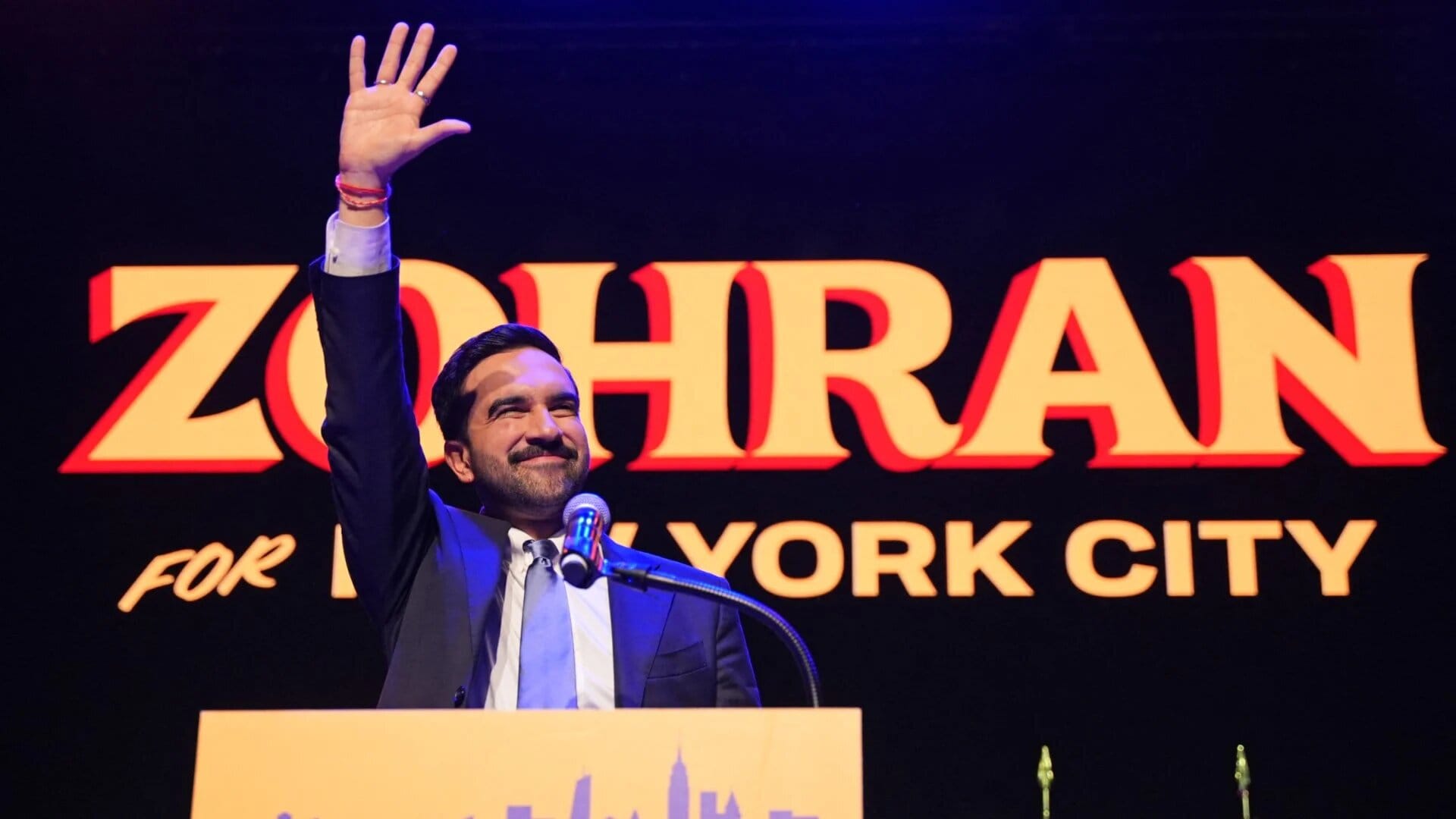A Mirage of Representation: On Zohran Mamdani, Identity and the Future of Muslim Leadership

This morning, I awoke to the anticipated news of Zohran Mamdani's mayoral victory in New York City and many headlines were teeming with feigned excitement for his list of 'firsts'. 'First Muslim mayor', 'First South Asian mayor' and some other, tired platitudes of socialism reentering the NYC political scene. Nonetheless, each title carried a faint glimpse behind the curtain of politics, as if this mere accumulation of 'firsts' could reflect anything substantive. For the world, Mamdani has been showcased as a symbol of progress, a reflection of the city’s diversity and a victory for representation. Yet, for many of us Muslims watching from across the same globe, his ascent inspires a more complicated meditation on what it means to be a true representation of Islam; what it means to be a principled leader in an age where identity is both marketing and supposed virtue.
We all must admit there was something dazzling about Mamdani’s campaign. The sleek language of justice and affordability, the choreography of authenticity. He is undeniably a marketing genius. In an era where politics can often be theatre, he certainly knew how to play the part. His charisma and visual relatability defined his victorious campaign. Upon glance, he speaks six languages, is an ethnic minority immigrant living in the most diverse city on earth. He is massively representational to so many people in NYC, and this without doubt allowed to him to connect with many of his voters, although on a surface level.
Representation is, after all, a fragile currency.
In recent times, we have been conditioned to celebrate the optics of diversity as though they guarantee the substance of truth or justice. The presence of a Muslim name in power does not simply equate to the presence of Muslim values in policy or governance. I don't wish to be overly cynical, but as a British Muslim I have become long accustomed to the hollow victories of identity politics. We too have our own pantheon of historic 'firsts' including the first Muslim Mayor of London, or first Hindu Prime Minister or the first Muslim First Minister of Scotland. Each celebrated as milestones of representational success, yet each embodied the strange paradox of faux representation. Only by name did they represent us, and to highlight one example, I want to talk shortly about Humza Yousaf. What I'm about to say may not be the most ideal Islamic stance nor a stance most Muslims take but I truly believe his opponent Kate Forbes, in the race for First Minister of Scotland in 2023, better represented the ideology of Islam. Whether it was on the nature of family and relationships, or even abortion, her views more greatly aligned with us traditional Muslims than the progressive Humza Yousaf. Yes, he was Muslim and we should support him, but if we're honest the substance of his beliefs were not reflective of many of ours.
To see someone who shares the language of your name or the shade of your complexion in office may stir a feeling of pride, but skin colour has never bestowed moral clarity upon anyone. Rishi Sunak’s polished neoliberalism or Sadiq Khan’s confused ideological dissonances serve as reminders that resemblance is not righteousness.
Therefore, Mamdani’s victory shouldn't be read as a triumph for Islam or Muslims globally, but as a case study in the politics of imaging. For me, it has unveiled how the modern left has weaponised identity. For many, Mamdani is less a politician than a projection of what progressive America wants a Muslim to look like; cosmopolitan, articulate and secular enough to be safe and tolerant of their vices.
And herein lies the tragedy. Islam as a moral and civilisational force has always demanded something more than symbolism, it beckons integrity and principality and humility before God. Leadership in the Islamic sense is not self-expression, it is service. Umar RA would weep at night fearing injustice under his watch and the Prophet PBUH would pray for his people until his feet swelled. Compare that with the performative sequencing of modern politics, where deen is simply branding, staged for the algorithm.
Meanwhile, the rest of the Muslim world sits mired by their own crises of leadership. The Gulf monarchies cling to their hollow faith, stacking marble while silencing truth and funding who-knows-which genocides. I've also been hearing an increase in the sectarian obsessions with unequivocal submission to authority. But circling back to the West, we have inverted the same principles of passivity with our 'Muslim leaders' who obey not kings or clerics but career advancement, applause and party whips. Both East and West are ailed with the same disease of moral irresolution.
As British Muslims, we must somehow deal with this. We cannot outsource our moral destiny to politicians whose faith is dependent to their platform or the shifting Overton window of modern morality. Nor should we indulge the illusion that representation can substitute principles. Our dream should not be to see ourselves in office, but to see our values reflected in policy those values of justice, accountability and honesty. We must cultivate a generation of Muslims who enter public life not in the performance of identity but standing on The Truth.
The next generation of Muslim politicians must navigate the machinery of modern politics without surrendering their faith. They must learn that faith is not an aesthetic but the foundation of who they are. We should raise them to believe that ambition is not wrong within limits - what harm is their in dreaming about 10 Downing Street or 1600 Pennsylvania Avenue if our hearts are intact.
Mamdani’s victory may, at best, awaken curiosity. Perhaps a young New Yorker will find interest in his background and faith. If that happens, then some good may yet emerge. But we Muslims must remain clear that he is not a representative of the Islam we know and love, but of a particular contrived image of Islam, progressive and palatable to the West.
The real challenge now lays with us. To nurture leaders within ourselves and the next generation who do not trade who they are. Islam’s philosophy is not about social prominence or visibility, its simply internal value. In the end, Mamdani’s campaign is a masterclass in modern marketing and political campaigning. A canticle of branding and narrative control. But perhaps this is precisely the problem, we have mistaken performance for principles.
As Muslims in the West, we find ourselves at a crossroads. Either we can continue to celebrate the optics of inclusion or we can work towards a higher standard of ideals, a political landscape that does not merely look Muslim, but feels Islamic.
Faithfully, Issa.

